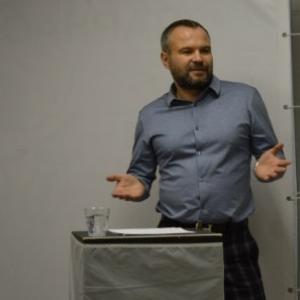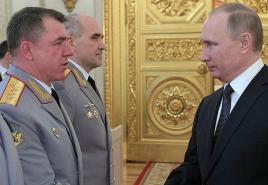Paragraph 7 people in the social connections system
Human nature has a dual character, since it was formed not only through biological formation, but also through social interaction.
Personality is a human individual who can act as a subject of social relations, and also has the property of conscious activity. In a narrower sense, personality means a system of human qualities that allow him to participate in the life of society.
The formation of personality is influenced by two factors: biological and social. The biological factor influences the formation of human habits, addictions to certain types of food, music, etc. The social factor shapes in a person his role in social relations, his attitude towards other social individuals, as well as towards himself.
Many scientists also identify a third factor – mental. Thanks to the mental factor, a person synthesizes information received from outside and accepts or rejects it.
Self-awareness and self-realization
Self-awareness is the process of a person’s awareness of himself as a mature personality who can interact with other members of society, make his own independent decisions and be responsible for them.
Self-realization is practical application self-awareness. Self-realization can be expressed in a person’s use of his talents, abilities, as well as the purposeful use of opportunities.
Social behavior
Social behavior is the action of a certain individual, which he directs towards other members of society. Human social behavior develops in three main directions - communication, activity and self-awareness. The formation of social behavior is influenced by such factors as traditions, ethics and ethics.
Unity of individual freedom and responsibility
In the course of his social realization, a person independently chooses the types of social activities. This process is called “social freedom”. Any manifestation of freedom, including social freedom, entails responsibility.
Personal freedom lies in the ability to foresee the boundaries beyond which one’s activities should not go. In the sociology of the 20th century, freedom was interpreted not as a privilege of the individual, but as a social burden that limits his needs.
From such a theory, negative and positive perceptions of individual freedom were derived. Personal responsibility is a kind of regulator that does not allow one to direct one’s actions to the detriment of society
Need help with your studies?
Previous topic: Cognition and knowledge: truth and forms of knowledge
Next topic: Spiritual life of society: culture and spiritual life, varieties of culture
A person is a subject, i.e. an active figure in the social system. However, a specific individual is not able to enter into a relationship with the whole society; he is always connected with other subjects through specific types of activities. Social connections differ in type and content depending on the nature of the joint activities of people and the relationships that arise between them. In the sphere of production, economic social ties are formed.
In the sphere of politics and law, social ties arise on the basis of compliance with laws. In the field of management, social connections are determined by the official position of the subjects of activity.
Society at any stage of its development and in any specific manifestation is a complex interweaving of many different connections and relationships between people. The life of society is not limited to the lives of the specific individuals that make it up. The complex and contradictory tangle of human relationships, actions and their results is what makes up society.
Man as a subject of consideration in social philosophy is taken not “on its own,” not as a separate individual, but as a representative of a social group or community, i.e. in the system of his social connections.
Each person simultaneously enters into several types of social connections and is nothing more than a “clump” of social relations (social connections) integrated into individuals.
The more complex the structure of social connections, the more power they acquire over the individual. In other words, in the diversity of social connections, there is a danger of losing personal integrity and replacing it with functional manifestations, when the system suppresses the personality, shaping its individual qualities “to order.”
Most often, connections are classified depending on the relationships that underlie them.
Accordingly, connections are distinguished:
family-related;
friendly;
neighbors;
professional;
client;
public (involvement in various types of social movements, associations, etc.).
56. Man and the historical process: personality and masses, freedom and necessity
Man and the historical process
Story is a process of human activity that forms a connection between the past, present and future.
For a long time, a linear model existed in science and philosophy. historical development, according to which society evolves from one, simple, to another, more complex stage. Currently, the view of the progressive course of the history of individual societies (cultures, civilizations), which has its own “end,” is considered more correct. The development of the historical process is influenced by many factors, among which man plays an important role.
A person is a subject of historical dynamics, capable of influencing ongoing events through his social activities. The role of a person in history especially increases if he is directly related to power. An example of this in national history there may be such major political and statesmen, like Peter the Great, Lenin, Stalin, who influenced the course of development of the country for several decades or centuries.
World history sets an ideal model for the education of the human personality.
33) The relationship between man and society: man in the system of social connections. The role of personality in history.
An individual becomes a personality by joining historical life of the human race, adopting and assimilating historically established forms of human activity. In his mental development the individual, as it were, repeats (of course, in an abbreviated form) the history of the development of all humanity, just as in his physical development he manages, in nine months of uterine existence, to experience the entire history of organic life on Earth - from a single-celled organism to a human baby.
“We see how what in earlier eras occupied the mature spirit of men has been relegated to the knowledge, exercises and even games of boyish age, and in pedagogical successes we recognize the history of the education of the whole world sketched out, as if in a condensed outline” (G. Hegel)
Personality and the masses
Weight is a special type of historical community of people.
The human collective turns into a mass if its cohesion is achieved by ignoring or suppressing the uniqueness of the individual.
The main features of the mass are: heterogeneity, spontaneity, suggestibility, variability, which serve as manipulation on the part of the leader. The ability of individuals to control the masses leads to ordering of the latter. In their unconscious desire for order, the masses elect a leader who embodies their ideals.
Therefore, the personality of the person leading the masses is usually charismatic, and the beliefs he holds are utopian.
Thanks to the leader, the mass acquires its complete form, subordinated to the implementation of some super idea that unites the team.
One of the most important attributes of the masses is facelessness, i.e. by definition, the mass excludes the personal principle, replacing it with the collective. Therefore, the individual, as a rule, desires separation in order to gain individual authenticity.
In the history of philosophy, the self-worth of the individual was noted in the Renaissance, the ideological basis of which was anthropocentrism. Philosophy cultivated the ideal of honor and dignity in a person, thanks to which he turned into a person.
With the entry of society into the era of capitalism, personal orientation gave way to group, collective orientation. Personality was viewed as an individual expressing common interests. Currently, the primacy of the personal over the public (mass) is legitimized by existing human rights.
Freedom and Necessity
The idea of freedom as a human value has always been important for philosophy, considering its essence and ways to achieve it.
In general, two positions of understanding this problem have been formed - epistemological (“freedom is a conscious necessity”) and psychological (the doctrine of “free will”).
In the most general sense Liberty is a person’s ability to be active in accordance with his intentions, desires and interests, during which he achieves his goals.
« Necessary“in the language of philosophy it means “natural,” which gives the idea of freedom the meaning of some limitation.
It turns out that in manifestations of freedom a person is forced, i.e. necessarily limited, for example, by law, morality, one’s own conscience, etc. In addition, he is not free from the laws operating in nature, society and culture, which subordinate any action. In this regard, human freedom is always understood in relation to something or someone.
A person’s life in society imposes restrictions in connection with the realization of the freedom of another person. Therefore, in philosophy there is a humanistic principle, according to which it is believed that the freedom of one person ends where the freedom of another begins.
Date of publication: 2015-01-26; Read: 4807 | Page copyright infringement
studopedia.org - Studopedia.Org - 2014-2018 (0.001 s)…
Human - a special being, a natural phenomenon, possessing, from one position, a biological principle (man in this sense is a highly organized animal, a higher mammal), from another position, a spiritual one (he has the ability to deep abstract thinking, articulate speech, assimilation of cultural achievements, high level of social organization).
Like other living beings, man has vital ( natural life) needs ˸ the need to preserve life, nutrition, reproduction, etc. However, human natural needs are “socialized”, “cultivated”, supplemented by “purely human” material, spiritual, social ones. Material needs reflect the need to provide decent lifestyle. Spiritual reflect the need for internal development, for familiarization with cultural values.
Social needs are associated with the desire to realize professional abilities, acquire social status, and the need for communication. Needs manifest themselves in interests and stimulate human activity, the development of man and society.
Human - This sociobiological creature, in which, in the conditions of modern civilization, the social principle (upbringing, morality, laws) controls the biological. Life, development, education in society is a key condition for the formation of a normal person, the development of individual, personal qualities in him.
People who lived outside human society from birth developed only the biological principle and, even after returning to society, did not take root in it. Labor and practice are of great importance for the transformation of a biological individual into a socio-biological personality.
The existence of individual representatives of humanity is fixed by the concept of “individual”.
Individual – this is a specific person as a representative and bearer of the human race or a member of a social community of a smaller order, a demographic unit. Unity, separateness are a prerequisite for individuality. To characterize the individual characteristics of a person (character, temperament, emotional-volitional sphere) there is a concept individuality. For centuries, the concept has been used to characterize the spiritual principle personalities.
Personality- these are the innate qualities of a person, developed and acquired in the social environment, a body of knowledge. Skills, values, goals. Personality is a person as a social being. Communication, activity, and behavior characterize the personality, and in the process of their implementation, a person asserts himself in society and manifests his own “I.”
An individual’s path to personality lies through socialization, the assimilation of social norms, thinking, and modes of action. Thanks to life experience a system of value orientations is formed, the choice of social roles is determined (a set of mandatory norms of behavior, behavior itself in a certain sphere of social existence).
One of the characteristics of a person is his autonomy, independence in decision-making and responsibility for their execution.
A personality also has a system of qualities (character traits, peculiarities of thinking and behavior).
Man in the system of social connections
She realizes her worldview, her conscious essence. Based on knowledge and logical abilities the mind is formed. The relationship between the mind and knowledge forms the intellect, as well as reason - the ability to understand one’s relationship to the world and to oneself. In the development of a personality, its qualities are manifested: positive (humanism, will, honor, conscience, convictions, modesty, patriotism, justice, loyalty, etc.) and negative (swagger, cynicism, cowardice, nihilism, etc.).
Read also
Let us turn to the consideration of social connections and relationships. Connection and relationship are general categories of dialectics that express the interdependence of phenomena separated in time and space, and the interaction of elements of a certain system.
The social structure of society is the totality of social communities that are the main subjects of social action. A social community is an integral social formation, which is characterized by stable connections between people, a unified way of life,...
Society at any stage of its development and in any specific manifestation is a complex interweaving of many different connections and relationships between people.
The life of society is not limited to the lives of the specific individuals that make it up. A complex and contradictory tangle of human... [read more].
A person is a subject, i.e. an active figure in the social system. However, a specific individual is not able to enter into a relationship with the whole society; he is always connected with other subjects through specific types of activities.
Social connections differ in type, content... [read more].
1) traditional approach: highlights macro, micro levels and communities, an image under the air of natural forces. 2) the second approach identifies structures within social subsystems: a) the ethnic structure of a society (clan, tribe, people, nation).
In the modern world there are about 800 ethnic communities and only about 200 states... [read more].
Society cannot do without social and then political institutions, i.e.
e. sustainable social or political institutions, institutions, associations and communities that perform social or political functions necessary for society. people are creatures... [read more].
Social connections are connections between the interactions of individuals and groups of individuals pursuing certain social goals in specific conditions of place and time. The study of the system of social connections that develop in the process of human life requires the study of his interests and orientation, as well as social actions and interactions with other people, communities, etc. Social connections can express the dependence between two or more social phenomena and the characteristics of these phenomena.
The mediating elements of this dependence are situational factors and personal characteristics of individuals, as well as the system of institutional social norms and means of social control adopted by society, which impose certain restrictions on the nature of social actions and interactions of people.
The starting point for the emergence of social connections is the interaction of individuals or their groups to satisfy certain needs.
Social connections as interaction represent any behavior of an individual (or group) that is significant for other individuals (or their groups, or society as a whole) both at the moment and in the future.
Under social interaction refers to any behavior of an individual, group of individuals, society as a whole
both at the moment and in the future.
relationships that differ in social positions (statuses) and roles (functions).
Social interaction has objective and subjective sides.
The objective side of interaction- these are connections that do not depend on individuals, but mediate and control the content and nature of their interaction. Subjective side- this is the conscious attitude of individuals towards each other, based on mutual expectations of appropriate behavior.
This interpersonal (or socio-psychological) relationships, which represent direct connections between individuals that develop under specific conditions of place and time.
The mechanism of social interaction includes: individuals committing
certain actions; changes in the external world caused by these actions; the impact of these changes on other individuals; their backlash.
Social action: structure and types. Theories of social action.
The concept of “social action” was first introduced by M. Weber. It was this researcher who defined the new sociological term and formulated its main features. Weber understood by this term the actions of a person, which, according to the assumption of the actor, are meaningfully correlated with the actions of other people or oriented towards them.
Thus, the most important features of social action according to Weber are the following:
1) the subjective meaning of social action, i.e. personal understanding possible options behavior;
2) a major role in an individual’s action is played by a conscious orientation towards the response of others and the expectation of this reaction.
Weber identified four types of social action.
This typology was made by analogy with his doctrine of ideal types:
1) goal-oriented action - the behavior of an individual is formed exclusively at the level of the mind;
2) value-rational - the behavior of an individual is determined by faith, the acceptance of a certain system of values;
3) affective – an individual’s behavior is determined by feelings and emotions;
4) traditional actions - behavior is based on habit, pattern of behavior.
Significant contributions to the theory of social action were made by T.
Parsons. In Parsons' concept, social action is considered in two manifestations: as a single phenomenon and as a system. He identified the following characteristics:
1) normativity – dependence on generally accepted values and norms;
2) voluntarism – dependence on the will of the subject;
3) the presence of sign regulation mechanisms.
Social action, according to Parsons, performs certain functions in a person’s life that ensure his existence as a biosocial being.
Among these functions, four can be distinguished depending on the subsystems of the individual’s life in which they are carried out:
1) at the biological level the adaptive function of social action is performed;
2) in the subsystem of assimilation of values and norms, social action performs a personal function;
3) a set of social roles and statuses is provided by the social function;
4) at the level of assimilation of goals and ideals, the cultural function is carried out.
Thus, social action can be characterized as any behavior of an individual or group that has significance for other individuals and groups in the social community or society as a whole.
Moreover, the action expresses the nature and content of relations between people and social groups, which, being constant carriers of qualitative various types activities differ in social positions (statuses) and roles.
An important part of the sociological theory of social action is the creation of a theoretical model of behavior. One of the main elements of this model is the structure of social action.
This structure includes:
1) actor(subject) – a bearer of active action, possessing will;
2) object – the goal towards which the action is directed;
3) the need for active behavior, which can be considered as special condition the subject, generated by the need for means of subsistence, objects necessary for his life and development, and thus acting as a source of activity of the subject;
4) method of action - a set of means that is used by an individual to achieve a goal;
5) result - a new state of the elements formed during the action, a synthesis of the goal, properties of the object and the efforts of the subject.
Any social action has its own mechanism of implementation.
It is never instantaneous. To trigger the mechanism of social action, a person must have a certain need for this behavior, which is called motivation. The main factors of activity are interest and orientation.
Interest is the subject’s attitude to the necessary means and conditions for satisfying his inherent needs. Orientation is a way of distinguishing social phenomena according to the degree of their significance for the subject.
In the sociological literature, there are various approaches to analyzing the motivation for social action. So, within one of them, all motives are divided into three large groups:
1) socio-economic.
This group includes, first of all, material motives that are associated with the achievement of certain material and social benefits (recognition, honor, respect);
2) implementation of prescribed and learned norms. This group includes motives that have social significance;
3) life cycle optimization.
This group includes motives associated with and conditioned by a specific life situation.
After the subject’s motivation arises, the stage of goal formation begins. At this stage, the central mechanism is rational choice.
Rational choice is the analysis of several goals in terms of their availability and suitability and their gradation in accordance with the data of this analysis.
The emergence of a goal can occur in two different ways: on the one hand, the goal can be formed as a kind of life plan that is potential in nature; on the other hand, the goal can be formulated as an imperative, i.e.
e. have the character of obligation and obligation.
The goal connects the subject with the objects of the external world and acts as a program for their mutual change. Through a system of needs and interests, situational conditions external world takes possession of the subject, and this is reflected in the content of the goals. But through a system of values and motives, in a selective attitude towards the world, in the means of achieving goals, the subject strives to establish himself in the world and change it, i.e.
that is, to master the world yourself.
Social actions act as links in a chain of interactions.
Date of publication: 2014-11-29; Read: 2125 | Page copyright infringement
studopedia.org - Studopedia.Org - 2014-2018 (0.002 s)…
Social studies lesson in 10th grade. Level – basic.Topic: “Man in the system of social connections.”
Goal: to develop the personal qualities of students’ self-realization in the process of independent cognitive activity while forming students’ ideas about the relationship between natural and cultural factors in human behavior, about the concept of personality and its qualities.
Objectives: to teach students to identify the main and minor points in the text, make inferences and conclusions, define concepts, carry out cognitive reflection regarding actions to solve educational and cognitive problems
Lesson technology: technology for organizing independent activities of schoolchildren.
Techniques: focused dialectical notes, drawing up a collage reference diagram, making self-diagnostic notes
Stages of technology for organizing and supporting students’ independent work
1. Goal setting stage
2.Activity stage
3. Control and evaluation stage
4. Reflective.
To determine the topic of the lesson, listen to a historical anecdote:
Plato asked his students: what is man? The students found it difficult to answer. Plato answered himself that man belongs to the genus of animals, a species of bipeds without feathers. Another philosopher passing by intervened in the conversation, throwing a plucked chicken in front of Plato. “Here, Plato, is your man.”
What is a MAN? Is a person isolated in his existence or is he in interaction with other people?
Student answers
Lesson topic: “Man in the system of social connections”
What goals, based on the topic, can be set for this lesson. We rely on materials you have previously studied in biology and social studies.
Student answers
Summarizing the goals, we reach the plan
1. Biological and social in man
2.Characteristic signs of a person
3.Personality
a) concept
b) personality structure
c) personality formation factors
d) the path of personality formation - activity
4. Differences in the concepts of “human personality” and “personality” in human understanding
5.Writing an essay.
Stage 2 – activity
The teacher acts as a consultant on the student’s educational request
Evaluation of completed work by the teacher
Self-assessment of completed work by the student
Working with the text of the textbook (Social studies. Edited by L.N. Bogolyubov, grade 10, paragraph 7);
As you work, fill out the table:
-Checking the table
Formulate your conclusion:
Man is a biosocial being; only in such unity can he exist. The biological nature of man is a natural prerequisite, a condition of existence, and sociality is the essence of man.
The slide formulates the definitions of the concepts “individual”, “individuality”, “personality” and lists these concepts
Assignment: it is necessary to correlate the concepts and definitions of human characteristics
Checking the task
An individual is a person as a separate individual among other people.
Individuality is the originality, uniqueness, uniqueness of a given person.
Personality is a person who actively masters and purposefully transforms nature, society and himself. This is a person with his own socially formed and individually expressed qualities (intellectual, emotional, strong-willed, moral, etc.) and who knows how to be responsible for his actions.
-We will write down the definitions of concepts in a notebook.
Assignment: make a characteristic portrait of a person (collage)
Checking the task (slide No. 2)
The right to choose
Responsibility for actions
Determination
Creative activity
Enterprise
Self-education
Self-education
Other options are possible
Let's continue working with the text of the textbook to examine the issue: personality structure (explain each element orally) and factors in personality formation. By drawing up diagrams reflect the acquired knowledge in a notebook.
Checking the completion of tasks:
Scheme Personality Structure
Social Social Orientation
status role (needs, ideals, interests, motives of behavior)
Scheme Factors of personality formation.
The era in which individuals live, their own “ego”
people both contemporaries and
who lived in the past, literature
tour heroes
Assignment: on slide No. 3 there is a portrait art series. Who can be called a person in human understanding?






Checking the task. Differences in the concepts of “human personality” and “Personality” in human understanding.
Stage 3 – control and evaluation
Student performance is assessed in essay format.
Statements given:
“Our personality is a garden, and our will is its gardener” W. Shakespeare
“Whoever wants to move the world, let him move himself” Socrates
“A child at the moment of birth is not a person, but only a candidate for a person”
A. Pieron
“Personality is the ability of a person to be master of himself thanks to voluntarily chosen firm principles”
Students have the right to choose any statement. The algorithm for writing essays with schoolchildren was worked out earlier on textbook“How to write an essay: new criteria, new approaches” K.O. Bityukova, V.G. Mordasova. We draw the attention of students to reveal the meaning of the statement. For example, the meaning of I. Kant’s statement is as follows: a person is independent and independent only when he has strong moral and civic qualities - honesty and decency, conscience and responsibility, respect for law, order and justice, and is responsible for his actions.
Stage 4 - reflective
Reflection can be carried out based on the following questions:
1. The main ideas of the lesson that I need
2. What happened: my achievements - personal and academic
3.What remains unclear to me? Can this be fixed?
4.What else needs to be done as part of self-education?
Homework: finalize the essay after reading the notes in your notebook and the textbook paragraph.
Slide 1
Man in the system of social connections

Slide 2
Lesson Plan
Man is a bio-social being. Personality. Socialization of personality. Self-awareness and self-realization. Freedom and responsibility of the individual.

Slide 3
1. Man is a bio-social being
“Eternal” philosophical question about the combination of biological and social in man. Some consider the natural and the social to be opposed to each other.
Others consider them to exist in an indissoluble unity (at birth - natural, in the process of development, social traits and characteristics are acquired).
The mental regulates the relationship between the biological and the social.

Slide 4
Any natural predisposition of a person is realized in social circumstances. Even absolutely identical (from a genetic point of view) identical twins become completely different people in different social conditions.
human genome
Deciphering the human genome has shown that much is inherent in a person from birth.
James Watson

Slide 5
2. Personality
Personality is a human individual as a subject of relationships and conscious activity. (The individual is considered as an active participant in free actions, as a subject of knowledge and change in the world). Personality is a stable system of socially significant traits that characterize an individual as a member of a particular society. (Personality is considered through a set of functions or roles. Personality is various social roles. A person’s connection with social relations and dependence on them is assumed).

Slide 6
3. Socialization of the individual
Social action is manifested in purposeful activity in relation to other people. MORES - attitudes of behavior in society that develop within a certain circle of people under the influence of habits. CUSTOM - strict adherence to regulations adopted from the past. It acts as a means of human socialization, the transfer of experience from generation to generation. MORES and CUSTOMS determine social behavior.

Slide 7
Socialization is a process of social learning that is approved by the group. A person acquires the qualities necessary for life in society. TWO MAIN STAGES: 1. Early childhood(external regulation of social behavior); 2. Growing up (replacing external regulators with internal control); THREE SPHERES: 1. Activities (expanding types, comprehension), 2. Communication (enriching your social circle, developing skills). 3. Self-awareness (formation of the image of one’s own “I” as an active subject of action.

Slide 8
4. Self-awareness and self-realization
SELF-AWARENESS is a person’s awareness of himself as an individual, capable of making independent decisions, entering into relationships with other people and nature, and being responsible for his decisions and actions. SELF-REALIZATION - identification and implementation by an individual of his capabilities, achievement of intended goals.

Slide 9
5. Freedom and responsibility of the individual
The concept of human freedom has changed throughout history. Modern concept freedom: Freedom is an awareness of the necessity operating in nature and society, an awareness of real limitations. Freedom is the awareness of alternatives from which a person independently chooses and is responsible for his choice. Responsibility is the other side of freedom, inherent in a mature personality and is expressed in awareness of oneself as the cause of one’s actions, in internal control over one’s thoughts and actions.
Social studies lesson plan in 10th grade "A person in a system of social connections." During the lesson, students will form an idea of the relationship between natural and cultural factors in human behavior.
Download:
Preview:
Lesson 12
PERSON IN THE SYSTEM OF SOCIAL RELATIONS
Target: to form a stable understanding of students about the relationship between natural and cultural factors in human behavior.
Lesson type : learning new material.
During the classes
PLAN:
1. Biological and social in man.
2. Personality.
3. Social behavior and socialization of the individual.
4. Self-awareness and self-realization.
5. Unity of freedom and personal responsibility.
I. Work on the topic of the lesson.
Assignment: Fill out the table:
– How do the biological and the social combine with each other?
Being a natural being, living according to the laws of the natural world, a person can live and develop fully only in human society.
– What happens if a child is not placed in a human environment? Will he change?
Consciousness and speech are not transmitted to people in the order of biological heredity, but are formed in them throughout life, in the process of socialization, i.e., the individual’s assimilation of the socio-historical experience of previous generations.
A person is an individual from the moment of birth. Individual - a single natural being, a bearer of individually unique traits.
Individual – a single specific person considered as a biosocial being.
The social properties of a person are usually determined by the concept of “personality”.
Personality - a human individual who is a subject of conscious activity, possessing a set of socially significant traits, properties and qualities that he realizes in public life.
– What does it mean to become a person?
– Name the personalities you know.
Exercise. Divide into groups and complete task 4, p. 76–77.
II. Consolidation of what has been learned.
Answer questions 1 and 2 from the “Self-test Questions” section.
Homework:§ 7, p. 67–70.
Lesson No. 11-12
Social studies, 10
Man in the system of social connections
D.Z.: § 7, ?? (p.76), tasks (p.76-77)
© ed. A.I. Kolmakov

Lesson Objectives
1. Students must learn the specifics of the social in a person, deepen their knowledge about the concept of “personality”, about the factors of its formation.
2. Development of skills in searching for information, extracting knowledge from unadapted texts, systematizing and analyzing information, abilities to identify the essential features of concepts and phenomena, compare social objects, formulate one’s own judgments, apply knowledge to solve cognitive problems, development of communication skills.
3. Focus on a positive, mature personality, understanding the need for self-knowledge and self-education.

Concepts, terms
- manners;
- customs;
- traditions;
- self-awareness;
- person, individual, personality; socialization;
- self-knowledge;
- self-realization;
- self-education;
- self-education;
- Liberty;
- responsibility.

Know and be able to
- Know connection between freedom and necessity.
- Be able to characterize the main points of view on the relationship between the biological and the social in humans.
- Highlight main features of the concept of “personality”.

Learning new material
- A person in a system of social connections.
- Personality, factors influencing its formation.
- Self-awareness and self-realization.
- Social behavior.
- The unity of freedom and responsibility of the individual.

Updating the problem
- What does it mean to be a person?
- How is the measure of social responsibility of an individual determined?
- How to find freedom while living in society?
Heinrich Heine called man “an aristocrat among animals.” How do you understand this expression? What arguments could you give in support of this judgment?
Explain the meaning of Helvetius’s statement: “People are not born, but become who they are.”

Biological and social in man
Biological
Social
Man is a biological being, because... he lives like all living things on earth. Each of its cells grows, develops, and dies. Man is part of nature.
Man is a social being, because... it completely depends on society and politics.
He cannot live separately from the world.

Biological in man
Social in man
- Presence of a circulatory system.
- The instinct of self-preservation.
- Ability to speak.
- Food instinct.
- Creative activity.

Fill out the table: “Man as a biosocial being.”
Biological in man
Social in man
1,2,4,8,9
3,5,6,7,10
- Presence of a circulatory system.
- The instinct of self-preservation.
- The ability to create tools.
- Metabolism between the body and nature.
- Ability for abstract thinking.
- Ability to speak.
- Subject of knowledge and change of the world.
- Food instinct.
- The structure of the cellular and muscular system.
- Creative activity.

Personality and socialization
- Personality
- Personality
- Socialization

individuality
individuality
“ Individuality is a unique set of colors for a masterpiece called “Personality,” but not yet the masterpiece itself.” (V. Gavrilov)
Human
Individual
Personality
Socialization
Feral people???

Stages of socialization
- Adaptation- an adaptation to the environment
- Personalization- this is awareness of one's own self
- Integration- this is when he takes his place in society
- Labor- this is the stage when a person works
- Post-work- pension

Liberty
Liberty - this is the opportunity to perform any actions not prohibited by law.
Golden Rule of Freedom :
One person's freedom begins where another person's freedom begins.

Responsibility
- Responsibility - this is the other side of freedom, awareness of oneself as the cause of one’s actions.

There are three factors in personality formation :
- Activity
- Communication
- Creation



check yourself
1. Which judgment is correct?
Answer: ___________

check yourself
2. Which statement is true?
Answer: ___________

check yourself
Work in groups. Complete the following task.
Below is a series of judgments about a person. If you had to write a coherent story about a person, how would you arrange the above judgments in the form of points in the outline of such a story? Why in this order?
A) “The measure of all things that exist is that they exist, and those that do not exist, that they do not exist”;
B) “the only animal for which its own existence is a problem; he must solve it and he cannot escape it anywhere”;
C) “a certain integrity of abilities”;
D) “this is what we all know”;
D) “this is what he wants, multiplied by what he can”;
E) “this is an animal that sows grain, saves money and knows that old age and death lie ahead of it.”

check yourself
Work with statements, work in pairs.
- Expand the meaning of the statements: “Man is a slave, because freedom is difficult, being a slave is easier.” ON THE. Berdyaev
- “The personality is characterized by an indomitable passion that burns within it like divine fire. She rebels and goes against each other every time she senses the threat of enslavement, entering into a struggle not so much for own life, how much for your dignity.” Emmanuel Mounier
- “ Personality is the only reality that we know and at the same time create from within.”

- Today I found out...
- It was interesting…
- It was difficult…
- I learned…
- I was able...
- I was surprised...
- I wanted…








